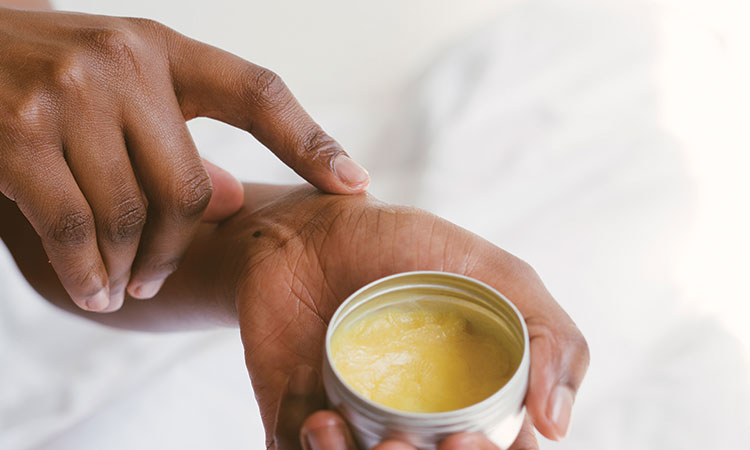Hormonal contraceptives are one of the most effective modes of birth control. Yet, they come with some lesser known side-effects Scroll down to learn about nine lesser-known side effects of contraceptive pills.
What Are Contraceptive Pills?
Hormonal contraceptives comprise pills, vaginal ring, and patch. However, contraceptive pills are a more popular method of birth control because it is easy to use and available in stores nearby.
There are mainly two types of contraceptive pills- combination pills which contain manmade estrogen and progestin hormones and mini-pills that contain only progestin.
According to our panel gynaecologist Dr Ankita Patel Tayal, the birth control pill has been used safely and successfully since 1960 when it was first approved by the FDA. Many of today’s birth control pills contain lower amounts of hormones and come in many different dosing options to allow women effective and flexible methods of family planning.
How Do Contraceptive Pills Work?
Different contraceptive pills work in different ways to prevent pregnancy. While some pills prevent ovulation, some pills thicken the cervical mucus. As you know, thickened cervical mucus prevents the sperm from reaching the uterus.
Some pills, especially mini-pills, concurrently thicken the cervical mucus and thin the endometrial lining. This makes it harder for fertilization, and even if fertilization happens, thin endometrial lining makes it even harder for the fertilized eggs to get implanted.
Calculate Due Date With Conception Date
Birth control pills are also used to manage heavy, irregular, or painful periods. It also helps in treating endometriosis and premenstrual syndrome (PMS). Yet, one should not overlook the disadvantages of contraceptives and long term side effects of birth control pills.
How Long Does It Take For Contraceptive Pills Side Effects To Appear?
Well, if you ask how long does it take for birth control side effects many of the side effects like headache appears without much delay. Headaches might start once you are onto contraceptive pills or as soon as you get into the fourth week of inactive pills.
You should give your body 3 to 4 months to adjust to the pills. Most of the short term side effects will disappear within this period.
Many women complaints of headache within the first five days after the termination of pills. This is an estrogen-withdrawal headache and usually resolves within three days.
Disadvantages Of Contraceptive Pills

Birth control pills also have some disadvantages. The main disadvantage of contraceptive is you have to take the pill every day. In a busy scheduled life, there are more chances one could forget to have it. This may result in an unwanted pregnancy.
Dr Ankita Patel Tayal, MD obgyn, says that taking a pill every day may be difficult for some people. If you miss a pill, you may need to use another form of birth control (i.e., condom) during your cycle. If you think you’ll have trouble taking a pill every day, an IUD or other long-acting form of birth control may be a better option for you.
Also, the minor and major side effects of birth control pills are their disadvantages.
The side effects of contraceptive pills vary widely from person to person. Also, different pills may bring about different side effects in different women. Let us find out the nine lesser-known side effects of contraceptive pills.
9 Lesser Known Side Effects Of Contraceptive Pills
Side effects of the contraceptive can be both long term or short term. The short term birth control side effects will be resolved within a couple of months as the body gets adjusted to the intake of the hormones.
The long term birth control pills side effects include high blood pressure, blood clots, cardiac issues, cervical cancer, stroke, and breast cancer.
However, you will be more at risk of long term birth control side effects only if you are taking contraceptive pills over a long period of time.
Here are nine lesser-known side effects of contraceptive pills
1. Headaches and migraines
Birth control pills contain hormones. Many women are sensitive to hormones in the contraceptive pills, especially to estrogen. The estrogen in the pills can trigger a headache or aggravate it if you are already prone to headache and migraines
Women with migraine will be susceptible to mood swings. They even might have noticed their headache aggravate at certain times throughout their menstrual cycle. This is because of the hormonal changes taking place as a part of ovulation and periods.
Sudden elevation or drop of hormone levels can trigger a headache. Normally the sheet of contraceptive pills includes hormone pills for three weeks and inactive pills – pills that are devoid of hormones for one week.
As the woman finishes her active pills and gets into the week of taking inactive pills, her estrogen levels suddenly drop. This can set off headaches, including migraines. A woman could also experience increased episodes of headaches when they start to take birth control pill owing to this hormonal swing.
Some studies find out that women with migraine, especially those who have migraine with aura, if continue to take birth control pills for a long term, are more at risk of inflammation in the head and serious health complications like stroke.
Therefore, if you fight with chronic headaches once you start the pills, it should be intimated to your doctor. He could prescribe alternative pills- pills that contain only progestin or a lesser amount of estrogen. Or he could guide you through other birth control options.
2. Depression

Some studies suggested that depression is a major potential side effect of using a hormonal contraceptive. This is more evident in adolescents who took contraceptive pills.
Another study says that women with a history of mood swings, anxiety and depression and even those who are battling insomnia can suffer from depression if they start to take contraceptive pills. Their symptoms are found to aggravate.
In many cases, especially among women who are already susceptible to depression, taking contraceptive pills heightens their risks of more depressive episodes. Not only the estrogen loaded pills could trigger moods wings, but progestin loaded pills are also found to adversely affect the women’s mood.
Are you wondering why hormone pills and mood swings are interlinked? Well, it is believed that steroid sex hormones manipulate the cortical and subcortical regions of the brain. These regions of the brain are associated with emotional and cognitive processing. That is why contraceptive pills can potentially trigger depression.
3. Yeast infections
Yeast infections happen as a result of an overgrowth of yeast in the vagina. Candida is the form of yeast that brings about yeast infection. It causes inflammation and intense itchiness. It is accompanied by thick white discharge similar to cottage cheese in form and liquidity. The discharge is more often odourless, yet, it could also smell like yeast as in bread.
Yeast infections are not rare among women. However, they are more prone to yeast infections when they are on contraceptive pills. This is mainly because the contraceptive pills disturb the natural hormone balance of the body.
The estrogen in the birth control pills manipulates the vagina to produce more sugar. This is an excellent atmosphere for the yeast already present in the vagina to thrive.
Candida is the common form of yeast that brings about yeast infection. This yeast tends to attach itself to estrogen. This eventually brings down the estrogen level. During this time, the progesterone level tends to spike. This is the ideal condition for Candida to flourish and lead to a yeast infection.
Also, contraceptive pills trigger yeast infection in women who have certain health conditions like poorly controlled diabetes, an unhealthy diet loaded with sugar, habitual alcohol consumption, and a weakened immune system.
Over-the-counter vaginal antifungal cream or a prescription medication could normally alleviate a yeast infection. However, if the issue persists, it is better to change your birth control methods.
4. Hair loss

Contraceptive pills can trigger hair loss. Especially women who have excessive sensitivity towards hormonal changes, and women who have a family history of hormone-related hair loss are more prone to hair loss due to the intake of birth control pills.
While many women experience hair loss while they are on pills, some others contract it soon after they terminate its use. Hair loss can also take place while you change your pill. Likewise, while some women lose little hair, others lose large tufts of hair experiencing extreme thinning of hair.
Let us see how hair loss is connected with contraceptive pills. As we all know, hair growth happens in cycles. The anagen phase is the active phase. It is the growth phase during which hair grows from its follicle. This phase lasts two to seven years.
Then comes the Catagen, which is the transitional stage during which the hair growth stops. It could last up to 20 days. Catagen is followed by the next phase – Telogen. This phase is the shedding phase. Up to 100 hairs can be shed per day during this phase. This phase extents up to 100 days.
Birth control pills make the hair to move from the growing phase to the resting phase too fast and for too long. This brings about thinning of hair. If baldness runs in the family, you are more at risk of hair loss due to contraceptive pills. In that case, opt for pills that contain more estrogen than progestin. It is the progestin in the pills that trigger hair loss.
Good news is that the hair loss triggered by birth control pills is usually temporary. You will stop facing these issues once your body gets used to the pill. It could take a few months, though. However, if the hair continues to thin and you don’t see signs of regrowth, it is better to consult your doctor.
5. Blood clots- a rare side effect of contraceptive pills
Blood clots are a rare, but a serious side effect of oral contraceptive pills. Although contraceptive pills cannot cause blood clots itself, studies show it can increase a woman’s chance of developing blood clots. This can be life-threatening because blood clots if happen in major blood vessel increases the risk of a heart attack and stroke.
Contraceptive pills contain synthetic estrogen and progestin hormones. Estrogen hormones could potentially trigger the component that clots the blood. However, for a normal woman, the risk of the blood clot is relatively very small.
But for a woman with a personal history of thrombosis or family history of blood clotting issues, the risk of blood clots while having contraceptive pills spikes.
6. Side effects of contraceptive pills- lower sex drive
It is definitely not good news, but, studies show that contraceptive pills can decrease sex drive in women. It is the anti-testosterone properties of the pill should be blamed for this. Let us see how hormonal birth control can impede the sex drive.
Basically, hormonal birth control methods are intended to prevent ovulation. For that, they have to suppress the female hormones. Sadly, those are the same hormones that control female sex drive. Sometimes, other side effects of birth control pills like vaginal dryness, breast pain can also bring down the sex drive in women.
Even though birth control is important, it is equally important to maintain a normal and healthy sex life. Therefore, any changes libido should be discussed with your doctor ASAP, before it brings a negative effect on your relationship with your partner.
7. Skin issues

Oral contraceptives can increase the risk of skin conditions like acne, melasma (brown-coloured marks in the face), dry skin, etc. The risk of the ill effect of the contraceptive pills on the skin is more in women who are having very sensitive skin and women with a family history of melasma
Studies say combined oral contraceptives can potentially affect the skin in three ways. First of all, the pills could bring down the level of androgenic hormones produced in the ovaries and adrenal gland.
Secondly, they could restrict the quantity of testosterone circulating in the body. And finally, estrogen could decrease oil production in the sebaceous glands markedly. All these factors can trigger skin conditions that could hamper your confidence.
8. Dry eyes
Hormonal changes that happen while taking contraceptive pills can trigger dry-eyes in women. Studies have shown estrogen-based pills can bring about dry eyes and vision problems associated with it.
This is because estrogen can adversely affect the tear gland, thereby, impeding tear production, bringing about an unwanted side effect of dry eyes. However, the problem of dry eyes is less among women taking combination pills of estrogen and progestin.
It is always better to see the doctor if a change in vision and discharge accompanies the eye dryness. However, if there are no associated symptoms, OTC saline eye drops could help to alleviate the irritation due to dry eyes.
Even though very rare, constant use of contraceptive can increase the risk of an eye condition called glaucoma that could adversely affect the eyesight.
9. Missed period
It is possible to miss the monthly period while taking birth control pills. And no, it is not a matter to worry. Contraceptive pills work by passing different hormones to your system that impede ovulation and impede other factors that facilitate fertilization and implantation.
No wonder it affects the monthly periods. While some women experience lighter bleeding, some women miss their period altogether. Some women experience spotting or irregular bleeding during the first three to four months after taking the pill.
However, most of these issues will subside once the body gets accustomed to the hormone pills. Now you know the lesser-known side effects of contraceptive pills. The good news is the I pill side effects on future pregnancy is very rare.
Both short-and long-term pill users may create a temporary delay in conception. Yet, it will not affect a woman’s probability of getting pregnant in future.


